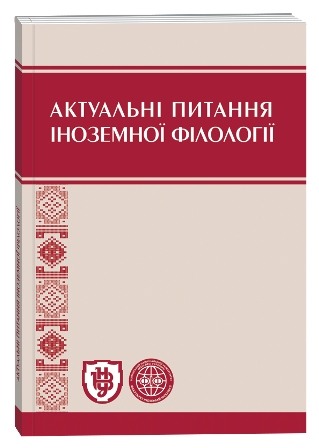FEMALE EXPERIENCE OF RECLUSE TRAVEL IN NIJO’S “TOWAZUGATARI”
DOI:
https://doi.org/10.32782/2410-0927-2021-15-1Keywords:
reclusion, Towazugatari, Nijo, recluse literature, Buddhism, travel literatureAbstract
Background. The article examines the Japanese novel “Towazugatari”, a memoir of the ‘nikki’ genre written circa 1307 by Nijo, former court lady turned Buddhist nun. This literary work can be divided into two parts, where the first part (scrolls 1 to 3) describes the life of Nijo at court, and the last part (scrolls 4–5) is devoted to her travels and pilgrimages to Buddhist monasteries and Shinto shrines after taking the tonsure. A significant amount of attention paid to reclusion in the text raises the question of whether this novel can be counted among the representatives of recluse literature, a medieval Japanese literary movement that includes works written by Buddhist monks focusing on the reclusive experience. However, it is first necessary to examine how prominent reclusion really is in the novel. The aim of the article is to establish the role and place of reclusion in the “Towazugatari” narrative, how the recluse experience is described, and how Nijo perceives her own experiences of reclusion and solitude, to evaluate the relationship between «reclusion» and «freedom», and elucidate the role of travel as the main reclusive practice of the author. The сhosen methods are the textual and contextual analyses of the “Towazugatari” in the original Old Japanese versions and in translation. The scientific novelty of the article arises from the lack of previous research on the subject of reclusion and recluse literature as pertaining to “Towazugatari”. This novel holds an important place in the Japanese literary canon, and recluse literature played a key role in medieval Japanese culture, therefore producing the need for a comprehensive study of both. Conclusions. Reclusion is the central theme of “Towazugatari”, and not only of its fourth and fifth scrolls, but also of the first three. The manner of depiction and perception of reclusion transforms over time – from the idealized symbol of freedom in the first three scrolls to the more mundane reality of the last two. However, the main function of reclusion – ensuring creative freedom – is preserved throughout the novel and is fundamental to its understanding.
References
Присяжнюк А. С. «Непрохана повість» Ніджьо у контексті літератури епохи Камакура. Науковий вісник Міжнародного гуманітарного університету. Сер.: Філологія. 2015. № 15. Том 2. С. 15–17.
Присяжнюк А. С. Психологізм «Непроханої повісті» Ніджьо. Вісник Київського національного університету імені Тараса Шевченка. Східні мови та літератури. 2016. Вип. 1 (22). С. 68–71.
Citko M. Three faces of lady Nijō, the authoress of Towazugatari. Silva Iaponicarum. 2009. Vol. 21/22. P. 11–60.
Go-Fukakusa-in Nijo. Lady Nijo’s own story. The candid diary of a thirteenth-century Japanese imperial concubine / transl. by W. Whitehouse, E. Yanagisawa. Rutland, Vermont & Tokyo: Charles E. Tuttle Company, 1983. 395 p.
Go-Fukakusa-in Nijo. Towazugatari. Yatagarasu Navi, 2019. URL: https://yatanavi.org/text/towazu/index.html
Go-Fukakusa-in Nijo. Towazugatari (Annotated classics series) [in Japanese] / transl. by K. Tsugita. Tokyo: Meiji Shoin, 2003. 319 p.
Kimura S. Regenerating narratives: The confessions of Lady Nijo as a story for women’s salvation. Review of Japanese culture and society. 2007. Vol. 19. P. 87–102.
Marra M. The aesthetics of discontent: Politics and reclusion in medieval Japanese literature. Honolulu: University of Hawaii Press, 1991. x+222 p.
Matsumoto Y. Female Saigyo. The world of Towazugatari [in Japanese]. Tokyo: Bensei Shinsho, 2001. 272 p.
Sarra E. Towazugatari: Unruly tales from a dutiful daughter. The father-daughter plot. Japanese literary women and the law of the father / Eds. R. L. Copeland, E. Ramirez-Christensen. Honolulu : University of Hawai’i Press, 2001. P. 89–114.
Tamai K. Complete research of Towazugatari [in Japanese]. Tokyo : Meiji Shoin, 1971. 687 p.







